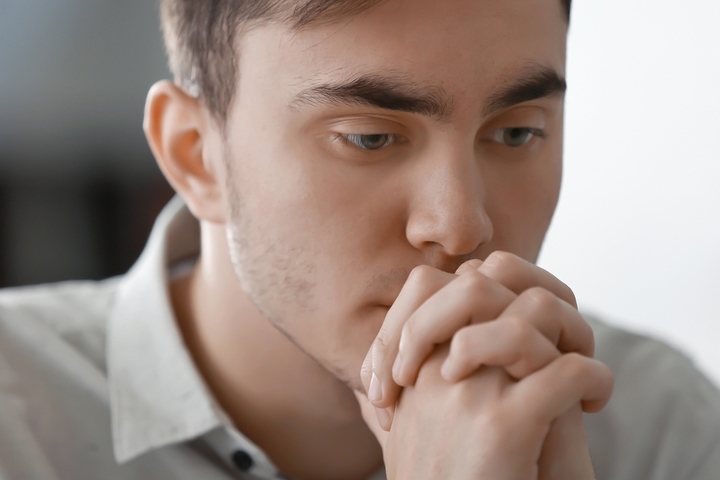Unfortunately, work-related or sports-related injuries can increase suffering from depression. If you have been injured, you might now be struggling with fatigue, sleep issues, decreased productivity, anxiety, feelings of worthlessness or emptiness, and a lack of interest in activities that usually make you feel happy and engaged.
If you recognize some of these symptoms in your situation, you should seek the help of a mental help professional before things get worse. You should also consider these seven tips for treating depression after an injury:
Tip #1: Be involved in your injury recovery

Being injured is frustrating, and it can make you feel powerless. But keep in mind that healing takes time and that it’s important not to push yourself.
However, being fully involved in your recovery should help you feel more in control of your situation. Get the treatment you need, and allow yourself some time to rest. Consider working with a physical therapist and following their advice and recommendations.
You should also do your best to understand exactly how you got injured, to find ways to prevent it from happening again in the future.
Filing a personal injury claim might be necessary, so you can get the financial compensation you deserve. Be sure to work with a personal injury lawyer who will handle your claim effectively so you can truly focus on your recovery.
Tip #2: Focus on eating a healthy diet

When we feel depressed, we might not like cooking or eating healthy foods. But of course, eating junk food and snacks full of sugar is not a good way to help our body and mind feel better.
Focusing on eating a healthy diet day after day will be a good way to help fight your depression. If your injury prevents you from preparing your meals or shopping for groceries, don’t hesitate to ask for help.
Tip #3: Keep a healthy sleep schedule

Similarly, your injury might have disrupted your sleep schedule. Perhaps you used to get up early each morning to go to work, but now that you can’t work anymore, you stay up late and spend a good part of the day in bed.
Sleeping in might sound tempting, but poor sleep patterns will hurt your mental health, especially if you are now struggling with sleep issues. Even though it seems hard, do your best to keep a healthy and consistent sleep pattern.
Tip #4: Move your body despite your injury

Your injury might make it difficult for you to exercise. Plus, you do need to rest. But if you are feeling down and depressed, moving your body will help you boost energy, improve your mood, and reduce stress and anxiety.
Find a way you can move your body without feeling any pain. Even a few minutes of gentle exercise could be enough to get your blood pumping and make you feel better.
A physical therapist should help you find a safe way to move despite your injury.
Tip #5: Surround yourself with friends and family

If you have to stay home because of your injury, it’s normal to feel isolated. You might miss your work colleagues or the people with whom you were exercising or playing sports.
But being alone all the time isn’t good. If you want to treat your depression after an injury, you need to surround yourself with people who will make you feel better, even if it’s only for a short conversation every few days.
Tip #6: Believe in positive affirmations

Depression often comes with extremely negative thoughts. It can be difficult to ignore these thoughts or slowly replace them with positive ones.
But don’t underestimate the power of positive affirmations. Writing down a few positive affirmations on a sticky note, and reading them out loud when you are struggling with negative thoughts, can help calm your mind and change your outlook.
Tip #7: Allow yourself to grieve

Perhaps your injury will make it impossible for you to return to work or play sports. If that is the case, it’s perfectly natural to feel frustrated, angry, sad, and depressed.
There is not much you can do to change the doctor’s diagnosis. But you can at least allow yourself to grieve this loss. Take the time you need to recognize your feelings and experience them. Eventually, you will manage these feelings, accept your loss, and keep moving forward with a more positive mindset.
Finally, remember that if these seven tips don’t help or your negative thoughts and feelings get overwhelming, you need to talk to a mental health professional. They will suggest treatment or some lifestyle adjustments help you feel better.




